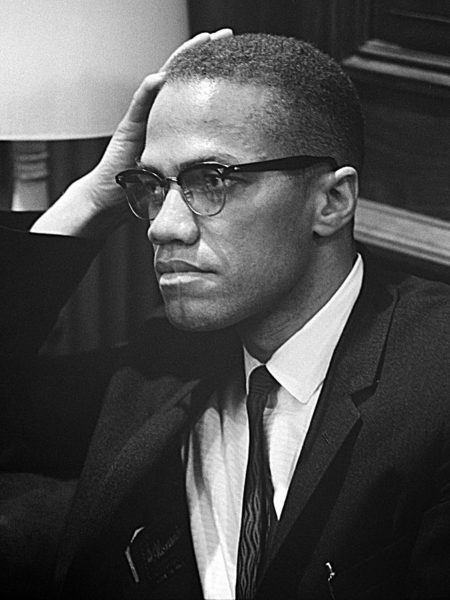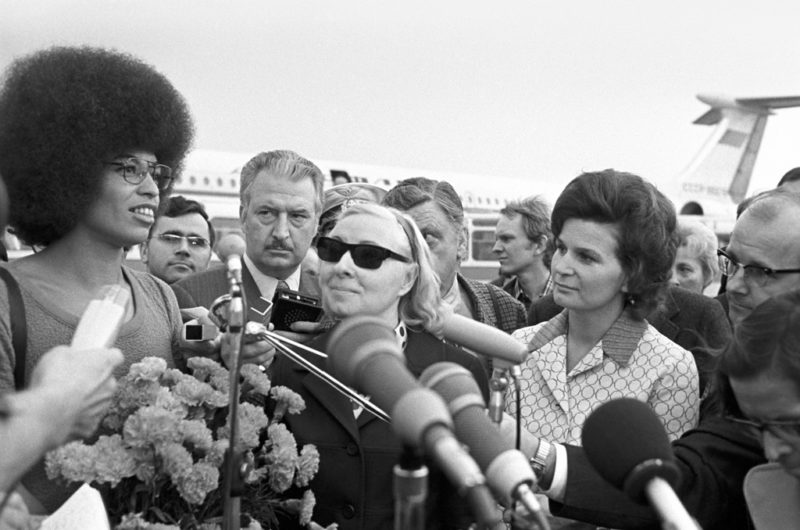Feb. 21, 1965: Assassination of Malcolm X
After his release from prison in 1952 following a six-year sentence, Malcolm X visited Elijah Muhammad in Chicago after encountering his teachings in prison and changed his surname from Little to X to symbolize his stolen African identity. His meeting with Muhammad encouraged him to join the Nation of Islam and become a minister, human rights activist and prominent black nationalist.

After several years of delivering passionate and inspirational speeches, Malcolm X single-handedly increased the number of followers in the Nation of Islam from 400 to at least 40,000. His influence was prominent in the growth of the religion, but on Mar. 8, 1964, Malcolm announced his break from the Nation. He claimed that “he was still a Muslim, but he felt the Nation of Islam had ‘gone as far as it can’ because of its rigid religious teachings.” While he was still a Muslim, X agreed to organize a black nationalist group that would advocate and heighten the political consciousness of African Americans.
However, this is what led to his assassination. In 1965, while addressing the Afro-American Unity, Malcolm was shot by rival black Muslims. His death “provoked a salvo of criticism and was rightly seen by many as a force to be dealt with. Yet, despite his popular condemnation and disrepute, it was him and his bold radicalism that brought forth the shift of the Civil Rights Movement, and its cause on the world stage.”
Feb. 23, 1972: Angela Davis is released from prison
Angela Davis grew up in Alabama and quickly became active in politics and social reform due to her mother being highly active in the National Association for the Advancement of Colored People. When she was 23 and earning her degree at Brandeis University, Davis was moved by a bombing in her hometown that killed four school girls. She quickly joined the Civil Rights Movement, and the Student Nonviolent Coordinating Committee and the Black Panther Party heavily influenced her. A few years later, she was hired at the University of California, Los Angeles as an assistant professor of philosophy; however, her involvement and connection to the Communist Party called for her immediate removal.

While looking for work, Davis became an activist for improving prison conditions, which led to her campaign to release the Soledad Brothers. But in October of 1970, police in New York City arrested Angela Davis under connections to a shootout that occurred in August at a California courtroom. She spent time in prison while the Federal Bureau of Investigations and the New York Police Department investigated her case and her relation to the shooting. After two years in the justice system, Davis returned to teaching and writing and was the vice-presidential candidate for the United States Communist Party in 1980.
Similar to Malcolm X, Davis’ radicalism brought forth a shift in the Civil Rights Movement. Davis has since separated from the Communist Party and is now an author and university professor.
Feb. 27, 1988: Debi Thomas becomes the first African American to win a medal at the Winter Olympics
Debra Thomas won her first figure skating competition at age nine after growing up with her mother and father in Poughkeepsie, New York. In 1986 while representing the Los Angeles Skating Club and studying at Stanford, Thomas won the senior title at U.S. Nationals and later won the 1986 World Championships.
In 1988, she led the American team of figure skaters to the Winter Olympics in Alberta. While her skate wasn’t perfect, she managed to earn a bronze medal and went down in history as the first African American to win a medal at the Winter Olympics.
Her win has inspired so many black and female athletes to compete in the Olympics as well as on the collegiate level and in other competitive sports. Following in her footsteps are Maame Biney, Simone Biles, Erin Jackson, Elana Meyers Taylor, Lauren Gibbs and Kehri Jones.





